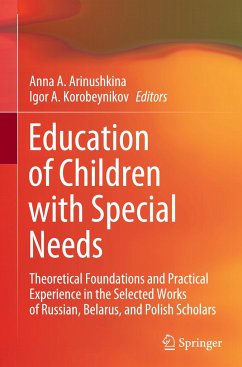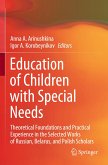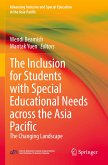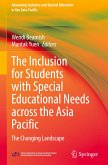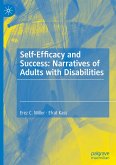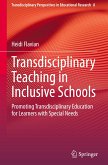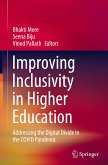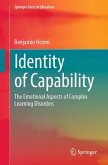This book presents for the first time the results of scientific research in the field of special education and special psychology carried out by top experts of the Russian Federation and the Republic of Belarus. The range of problems discussed in the book reflects the most relevant areas of development of the education system and psychological and pedagogical assistance to children with special educational needs (SEN). Both scientific and methodological developments provide practitioners with modern means of diagnostic, correctional, developmental, and preventive work.
Furthermore, responding to the current challenges, the authors present the results of research on the impact of virtual reality on the health of adolescents, the results of an experiment on the study and formation of financial literacy of high-school kids with developmental disorders, highlight approaches to the prevention of auto aggressive behavior in the adolescent environment, and offer the proven technologies for psychological and pedagogical habilitation and rehabilitation of children with SEN of various nosologic groups and children with somatic pathology studying at a hospital school.
The theoretical block of the book includes an analysis of the fundamental problems of today's pedagogical and social reality: substantiation of conceptual approaches to the construction of an inclusive space, consideration of the basic psychophysiological mechanisms of speech, the formation of a convergent network educational environment and some other problems that can directly or indirectly affect the quality of education, upbringing, and social adaptation of children with SEN.
The book is intended for psychologists, special-need experts, teachers, methodologists, employees of educational organizations working with children with disabilities, specialists in the field of inclusive education, students and teachers of special education, and pedagogical andpsychological departments of higher education institutions.
Furthermore, responding to the current challenges, the authors present the results of research on the impact of virtual reality on the health of adolescents, the results of an experiment on the study and formation of financial literacy of high-school kids with developmental disorders, highlight approaches to the prevention of auto aggressive behavior in the adolescent environment, and offer the proven technologies for psychological and pedagogical habilitation and rehabilitation of children with SEN of various nosologic groups and children with somatic pathology studying at a hospital school.
The theoretical block of the book includes an analysis of the fundamental problems of today's pedagogical and social reality: substantiation of conceptual approaches to the construction of an inclusive space, consideration of the basic psychophysiological mechanisms of speech, the formation of a convergent network educational environment and some other problems that can directly or indirectly affect the quality of education, upbringing, and social adaptation of children with SEN.
The book is intended for psychologists, special-need experts, teachers, methodologists, employees of educational organizations working with children with disabilities, specialists in the field of inclusive education, students and teachers of special education, and pedagogical andpsychological departments of higher education institutions.

